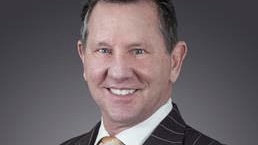A fascination with microbiology has taken Jessica van Loben Sels ’12 around the world, earned her a PhD, and put her at the heart of the national pandemic response.
“I’ve always been fascinated by microbial pathogens,” van Loben Sels said in a January 2021 interview, crediting St. Pius X science teacher Lorraine Schierstein’s ’98 microbiology elective for sealing the deal for her science pursuits. “I enjoy biomedical research because it has the potential to help so many people clinically, but I knew as an undergrad I didn’t want to be a clinical physician. I was trying to find that sweet spot where research and science intersect in the public sphere.”
In her search for that sweet spot, she earned the Oxford Cambridge Scholarship from the National Institutes of Health in 2016, a scholarship funding her PhD research and designed to train biomedical researchers to investigate human diseases and develop new treatments. After earning her bachelor’s degree in microbiology at the University of Kansas, the PhD program split her time between Cambridge University in the United Kingdom and at the NIH in Bethesda, Md. She was one of fewer than 20 students across the country to receive the award.
She spent two years at Cambridge designing and validating improved diagnostic assays for characterizing antibody responses to norovirus infections. She traveled to Vietnam in 2018 to lead a field study where she could apply these assays and define patterns in children’s immunity after exposure to various stains of the virus early in life. She returned to the U.S. and the National Institute of Allergy and Infectious Diseases for the final segment of her work — translating the research and fieldwork into potential treatments for individuals suffering from persistent norovirus infections. She completed the program and earned her Ph.D. in January 2021.
While finishing her PhD and starting a master’s degree in public health at George Washington University in 2020, the coronavirus pandemic began. In place at the NIH, she works with the NIH COVID Response Team, initially contacting positive patients and tracing possible transmission to other NIH employees. She then moved into the epidemiology side, compiling data from all positive contact traces and running statistical calculations to identify who is most at risk and why they faced increased chances of being infected. The direct experience has further fueled her interest in public health. She will finish her master’s degree in 2022, with an ultimate goal of earning a fellowship with the Centers for Disease Control and Prevention’s Epidemic Intelligence Service.
“The CDC takes people who are on the rise in public health and trains them to do field epidemiology,” she said. “They send you to places facing disease outbreaks or public health threats that need help tracking cases, determining what behaviors increase risk of transmission, determining which demographics are more at risk, and establishing an effective response to curtail disease spread. It’s public health from the ground up.”
The opportunity fits her desire to ultimately use research to help people. “I’m most interested in the human aspect of disease, not just the pathogen by itself,” she said.
It’s an interest that showed itself at St. Pius X in a pursuit of science as well as art. While science classes took up half of her electives, the other half was spent in the arts — visual arts, theater, she even learned to play the violin her senior year “for fun.”
“I feel I was more of a Renaissance kid in high school,” she said. “I had a lot more interests that I could explore. I think in my mind I knew that once I started studying science in college, I wouldn’t have the time to devote to the arts, so I wanted to do as much as I could while I was there.”
Van Loben Sels credits visual arts teacher Dr. Trinidad Lopez, theater tech teacher Esperanza Path, and her violin teacher and orchestra director Keith Jordan for feeding her arts interests and allowing her to embrace those forms of communication.
For van Loben Sels, the communication aspect of science is essential. “It has been a shock to me that most of my fellow students in the master’s in public health program are people with business degrees or international studies degrees; it’s almost more of a political science degree,” she says. “But we need more scientists to transition into it. There’s a different perspective that a scientist takes in public health crises, and scientists have the responsibility to translate data into compelling arguments and build a bridge between the public and science.”

